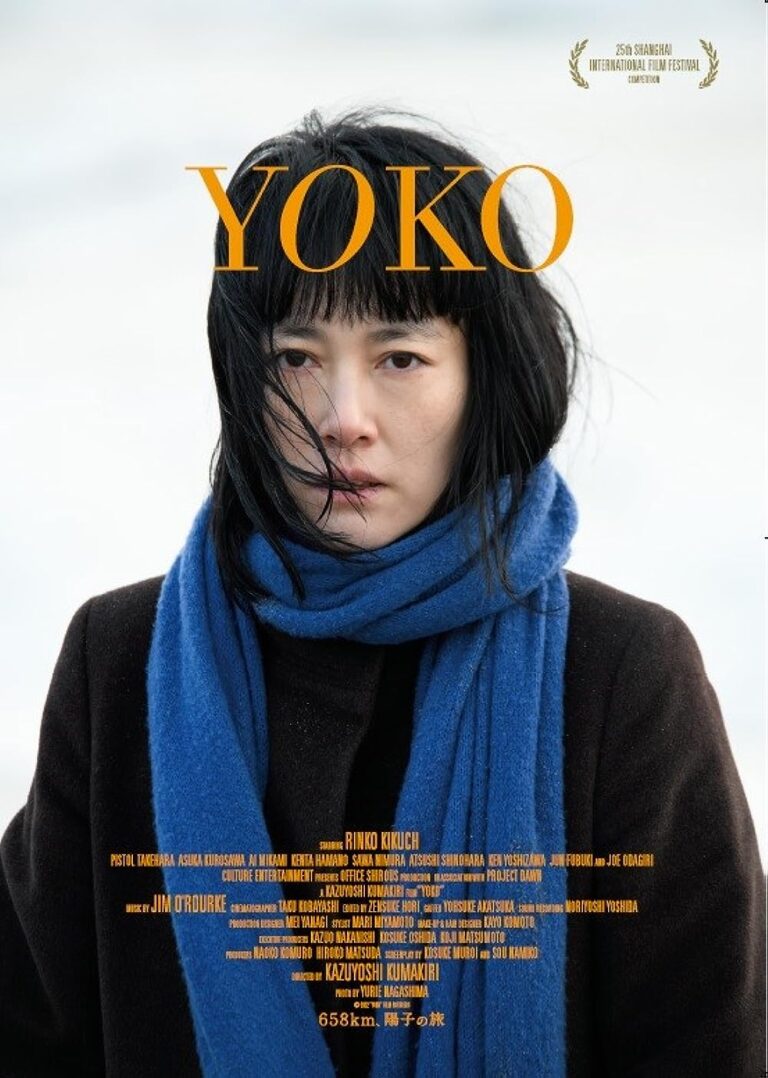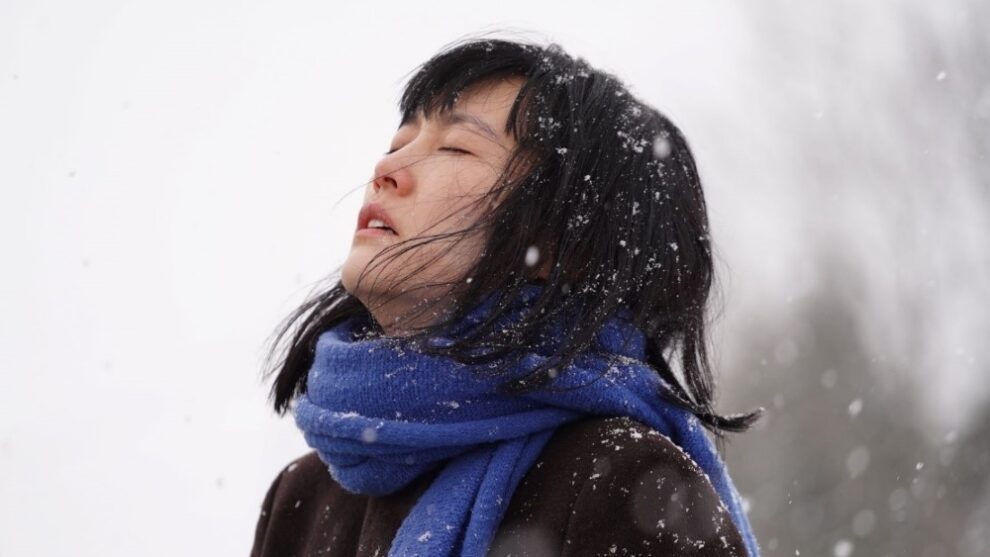
The Japanese Agency for Cultural Affairs (ACA Cinema Project Japan) sets the scene for its Los Angeles ACA Cinema Project Series, which takes place from September 26th to September 28th. Amongst the featured films is Yoko, directed by Kazuyoshi Kumakiri, winner of the Golden Goblet Best Picture Award at the Shanghai International Film Festival.
The original title already gives a sense of the lengthy journey conducted by the protagonist: 658km, Yoko no Tabi. Yoko (Rinko Kikuchi) is a 42-year-old single “freeter” (freelancing part-time worker), whose aspirations in life did not materialise.
She is resigned to continue her unfulfilled life, as an online customer service clerk from her tiny studio apartment. But one day a piece of news arrives, that forces Yoko to confront her shattered dreams and childhood damage. She is informed about the death of her estranged father (Odagiri Joe), whom she hasn’t seen for twenty years. Thus, she reluctantly joins her cousin Shigeru (Takehara Pistol) and his family, on a road trip to the funeral in her hometown of Aomori. However, Yoko gets inadvertently left behind at a highway rest stop. She has no phone or money for public transportation and has to hitchhike to reach her destination. During this quest she meets very different prototypes of the human species. Some are indifferent, some try to take advantage of her, some display generosity and compassion. They include a sharp-tongued single mother (Asuka Kurosawa), a friendly girl (Ai Mikami), a dubious writer (Kenta Hamano), and a warm-hearted couple (Ken Yoshizawa, Jun Fubuki). Throughout this ordeal Yoko often has visions of her young father Hino: he follows her throughout her trip but never interacts with her, he is a presence she cannot shake off. Yoko remains aloof and buttoned-up with all the people she encounters except for the final trip: during the last ride she finally vents out all of her grief. The question is will she reach the house before the coffin leaves?

The screenplay by Kosuke Muroi and Sou Namiko depicts with sensitivity the so-called “Employment Ice Age.” This is an expression used in Japan referring to a period starting around 1994 and ending by 2004 where young graduates — as well as those who had lost their first jobs due to the Bubble Economy collapsing — were unable to find stable jobs. Yoko is the epitome of an era: the Lost Decade.
Just like others from Generation X, she suffers the consequences of the economic stagnation. Now, not only is life uncertain, but it is normal to live without forming close relationships with others.
Actress Rinko Kikuchi conveys an exceptional quiet intensity to the titular character. This is her first time in a Japanese film where she plays a leading role, although it’s been a while she conquered Hollywood. Kikuchi was the first Japanese actress to be nominated for an Academy Award in 50 years, for her work in Babel (2006), and also starred in Norwegian Wood (2010) and Guillermo del Toro‘s science fiction action film Pacific Rim (2013). In Yoko, she unleashes a formidable performance showing a woman annihilated by crushed hopes. Rinko Kikuchi is supported by an accomplished cast and Jim O’Rourke’s temperate music score, that help display the mighty metaphor of the overbearing pain of living.
Kazuyoshi Kumakiri’s minimalism serves as a powerful tool to heighten the emotional odyssey that spectators embark upon, while following Yoko’s feats. This road movie will stir hearts by reminding that there is no deadline to prove ourselves worthy.
Final Grade: B

